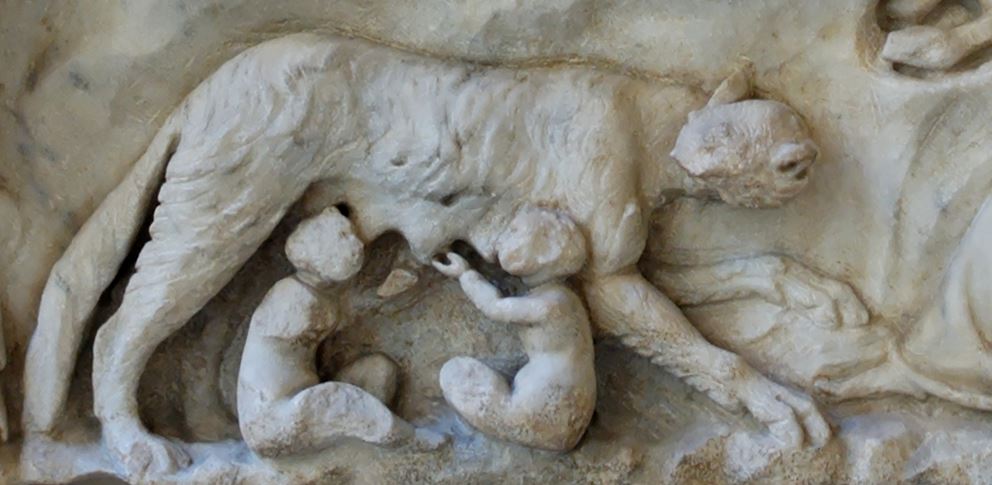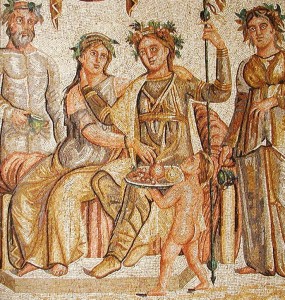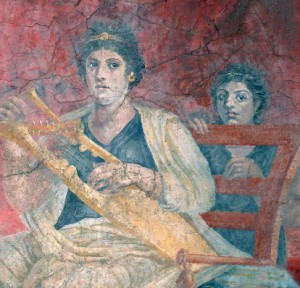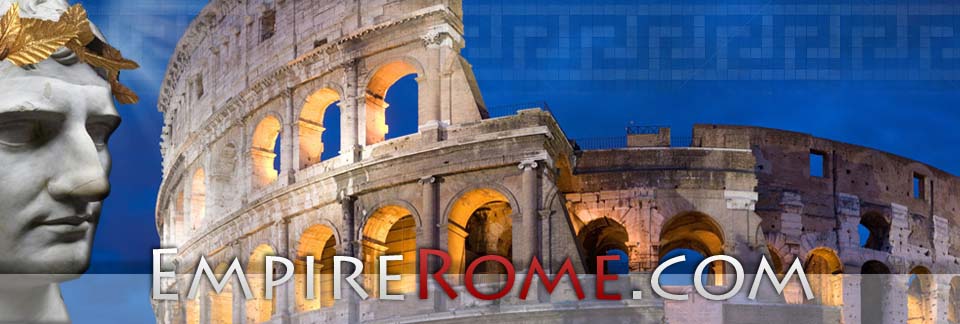
Ancient Rome did not start off with a government and Emperor who ruled the Empire. Long before the Ancient Roman Emperors were the Ancient Roman Kings. Ancient Rome’s government and legal system evolved as time went on and became a great and vast Empire. After the Ancient Roman Kingdom, Ancient Rome became a Republic. This Republic did not have one person in charge but rather a system of government that made decisions and created some checks and balances. During the last 500 years of Ancient Roman rule, Ancient Rome became an Empire with Emperors who ruled with the advice from their government.
Ancient Roman Kingdom
The first king of Ancient Rome was Romulus, who according to legend founded the city of Rome in 753 B.C. that he named after himself. The founding of Ancient Rome happened after Romulus supposedly killed his twin brother Remus. Romulus and Remus fought over who would rule what land and the result was Remus was killed by Romulus.
After Romulus’ rule, there were six more kings. The Ancient Romans were ruled for many years by their Etruscan conquerors. These Etruscan kings ruled Ancient Rome for almost two hundred years. It is believed that there were seven kings, but this has not been verified since Ancient Rome’s early records were destroyed. The people of Ancient Rome’s kingdom soon became tired of these monarch kings and wanted more from their government.
| THE SEVEN EARLY KINGS | ||
| KING | FROM | UNTIL |
| Romulus | 753 BC | 716 BC |
| Numa Pompilius | 715 BC | 674 BC |
| Tullus Hostilius | 673 BC | 642 BC |
| Ancus Marcius | 641 BC | 617 BC |
| Lucius Tarquinius Priscus | 616 BC | 579 BC |
| Servius Tullius | 278 BC | 535 BC |
| Lucius Tarquinius Superbus | 534 BC | 509 BC |
During the time of the kings in Ancient Rome, the people called for a change. The people of Ancient Rome were tired of monarch rule and abusive behavior from their kings. The system of the kings only met the needs of the king and those in his circle. Advisors knew things had to change if Ancient Rome was going to grow into a strong power. Although not all kings were self-serving, the system of some of the kings left the people wanting more. The people of Ancient Rome wanted more: say in the government, rights, opportunity, luxuries, and wealth to the people. The advisors knew that if the people in Ancient Rome’s Kingdom were not happy, they might overthrow the Roman King and government and destroy the kingdom. The advisors were wise enough, and a bit unhappy with their king system as well, to understand that a change had to take place in order for Ancient Rome to prosper and grow.
In 509 B.C. the people soon took charge and overthrew their Ancient Roman Monarchy, and thus began the Roman Republic. After the people overthrew the Ancient Roman Kingdom, the rise of the Roman Republic would come, followed by the infamous Ancient Roman Empire where emperors emerged.
Ancient Roman Republic
The Ancient Roman Republic started after the overthrow of the Early Roman Kingdom. The last king of the Ancient Roman Kingdom was Lucius Tarquinius Superbus (LVCIVS TARQVINIVS SVPERBVS).
The new Roman Republic was no longer ruled by kings and monarchs but by the Senate. The Senate was made up of wealthy Patricians. The Senate consisted of two head Consuls. A Consul was a chief magistrate that had holy rights and near-total power. Consuls were selected by the Senate and elected by the popular assembly. In addition, both could veto the other’s decision. A senator was a person who was elected by the Consuls and once elected would remain a senator for life. A new senator would be elected if he died or was killed.
The second half of the Ancient Roman Republic government was the Assembly. The Assembly was elected by the Plebeians, who were the general citizens of Ancient Rome and were not wealthy or prestigious like the Patricians. Although not as powerful and wealthy like the Patricians, the Plebeians still held power. The power of the plebeians came from the fact that they made up a good majority of citizens. The other parts of the Ancient Roman government knew that if they did not listen and involve the Plebeians in government affairs, they could rise up and overthrow the entire system. Even the upper-class of Ancient Rome knew the importance of keeping citizens calm. With happy citizens came success, wealth, and a powerful government.
| BRANCHES OF THE GOVERNMENT | ||
| Magistrates | Senate | Assemblies and Tribunes |
| • Consuls led the government • Led army and the judicial system • Served a term of only one year • Power over citizens • Power over officials |
|
• Represented the plebeians • Approved or rejected laws • Elected magistrates • Declared war • Citizens could take part in assemblies • Tribunes served for one year • Could Veto |
Ancient Roman Empire
The Ancient Roman Empire is where the first Emperor emerged in Ancient Rome. As the first Emperor took power, so became the end of the Ancient Roman Republic. If a person was given the title Emperor, this meant he was declared Augustus or Imperator.
An Emperor and his family enjoyed fine luxuries. They stayed in the finest villas, ate the best foods, and had the most lavish clothes. Although the Emperor had the best of all luxuries, this position came with much paranoia and burden. If people in the government became tired of an Emperor, or they did not like how he was ruling, he would be assassinated. Emperor assassination was almost commonplace in Ancient Rome. Some Emperors could not even trust their own family, wives, or close friends.
 Emperors did not like the title “king” as they were serving the people; people who before were unhappy with king rule and overthrew the kingdom. The Ancient Roman Republic was an evolving system created to ensure that no ruler would have absolute unyielding power. However, once the first Emperor took power, this soon changed and the Emperor became more king like as his power grew. Power was given to Ancient Roman rulers through the Senate or military and later on through hereditary rule. Hereditary rule was the right to rule because they were born to an Emperor, much like the succession of a king. This practice did not last till the end of the empire as the Ancient Romans wanted to have a say about who would take power as Emperor.
Emperors did not like the title “king” as they were serving the people; people who before were unhappy with king rule and overthrew the kingdom. The Ancient Roman Republic was an evolving system created to ensure that no ruler would have absolute unyielding power. However, once the first Emperor took power, this soon changed and the Emperor became more king like as his power grew. Power was given to Ancient Roman rulers through the Senate or military and later on through hereditary rule. Hereditary rule was the right to rule because they were born to an Emperor, much like the succession of a king. This practice did not last till the end of the empire as the Ancient Romans wanted to have a say about who would take power as Emperor.
Under the rule of the Emperor, the Senate no longer had the power they once did under the Roman Republic. The Senate still met, argued, and made suggestions. However, the Senate was no longer collecting taxes and passing laws like before. This was all the Emperors power now. The Emperor collected all taxes and passed whatever laws he wanted. Although the system of having an Emperor was still a monarch type rule, and was obviously not perfect, many significant achievements were made because of this new system.
Positive Changes Under the Emperors
Helping the Poor – There were positive changes that came with the rule of the Emperors as well. The Emperors recognized the need to help the poor and started programs giving out food and helping the sick. This was a great idea during ancient times because Emperors realized their poor citizens needed to be fed and entertained in order to keep them from becoming dissatisfied. The poor were given free grain which showed them that the Emperor cared. This helped the poor from wanting to riot.
Free Entertainment – The Ancient Roman Emperors constantly looked for ways to find favor in the eyes of their citizens. This is because the Emperors knew that if they kept the people happy, they could maintain in power. If they had the people on their side, this gave the Emperor more leverage to do what he wanted. If people were displeased, this could lead to an Emperor assassination. In order to keep citizens happy, the Emperors began building huge amphitheatres and colosseums where Roman people could go watch free chariot racing, animal circus events, gladiators, and other sports.
The bigger and more elaborate each building, monument, or event showed the people of Ancient Rome how powerful the Emperor was. This was a type of advertising for the Emperor as the people knew a powerful Emperor would ward off invasions, keep Rome prosperous, and protect their empire. This basically meant that the Emperor would be in power as long as the people thought he could protect Rome. Throwing in free entertainment was also a huge plus for citizens of Rome.
Emperors continued ruling Ancient Rome during the imperial period until its decline and fall, five hundred years later.
Crime Reduction – In addition, the Emperor helped to reduce crime throughout Ancient Rome. Because the Emperor had the backing of the military and Roman Legionnaires, he employed them to monitor the streets. Ancient Rome’s Military was brutal and ruthless, and no one wanted to go up against these fearless merciless machines. Another reason is because punishments in Ancient Rome were violent and inhumane, this helped keep crime down once examples were made of people who broke the law or upset the Emperor.
 Women Rights – Under the Ancient Roman Empire women began to hold rights they never had before. Although they were still not able to be citizens like men, their rights were increasing. Women were now allowed to: have independent wealth–be paid for work, inherit property, make a will, own and sell their land, and initiate a divorce.
Women Rights – Under the Ancient Roman Empire women began to hold rights they never had before. Although they were still not able to be citizens like men, their rights were increasing. Women were now allowed to: have independent wealth–be paid for work, inherit property, make a will, own and sell their land, and initiate a divorce.
These rights would change somewhat depending on the Emperor. For example, when Emperor Augustus came to power he created strict rules for the women of Ancient Rome in order to force a traditional moral order, promote high birthrate, and stringent controls over the elite. Augustus’ idea of women and his new rules was a step backward concerning women’s rights in Ancient Rome.

